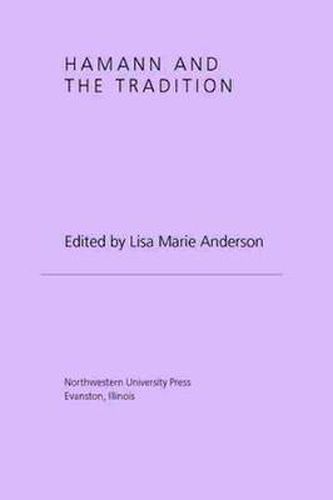Readings Newsletter
Become a Readings Member to make your shopping experience even easier.
Sign in or sign up for free!
You’re not far away from qualifying for FREE standard shipping within Australia
You’ve qualified for FREE standard shipping within Australia
The cart is loading…






Recent years have witnessed a resurgence of scholarly interest in the work of Johann Georg Hamann (1730-1788), across disciplines. New translations of work by and about Hamann are appearing, as are a number of books and ar ticles on Hamann’s aesthetics, theories of language and sexuality, and unique place in Enlightenment and counter-Enlightenment thought. Edited by Lisa Marie Anderson, Hamann and the Tradition gathers estab lished and emerging scholars to examine the full range of Hamann’s im pact-be it on German Romanticism or on the very practice of theology. Of particular interest to those not familiar with Hamann will be a chapter devoted to examining-or in some cases, placing-Hamann in dialogue with other important thinkers, such as Socrates, David Hume, Friedrich Nietzsche, Martin Buber, Franz Rosenzweig, and Ludwig Wittgenstein.
$9.00 standard shipping within Australia
FREE standard shipping within Australia for orders over $100.00
Express & International shipping calculated at checkout
Recent years have witnessed a resurgence of scholarly interest in the work of Johann Georg Hamann (1730-1788), across disciplines. New translations of work by and about Hamann are appearing, as are a number of books and ar ticles on Hamann’s aesthetics, theories of language and sexuality, and unique place in Enlightenment and counter-Enlightenment thought. Edited by Lisa Marie Anderson, Hamann and the Tradition gathers estab lished and emerging scholars to examine the full range of Hamann’s im pact-be it on German Romanticism or on the very practice of theology. Of particular interest to those not familiar with Hamann will be a chapter devoted to examining-or in some cases, placing-Hamann in dialogue with other important thinkers, such as Socrates, David Hume, Friedrich Nietzsche, Martin Buber, Franz Rosenzweig, and Ludwig Wittgenstein.